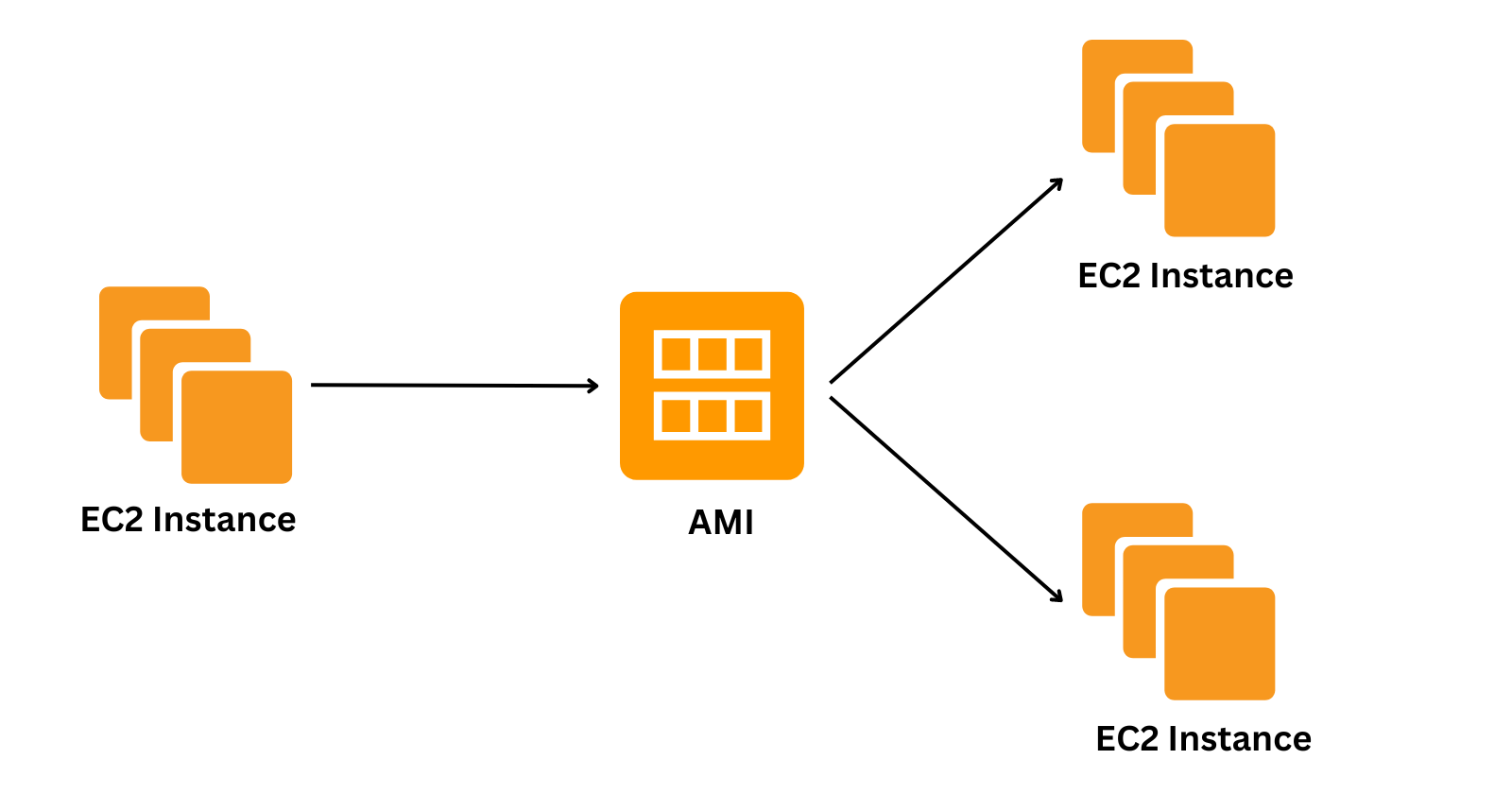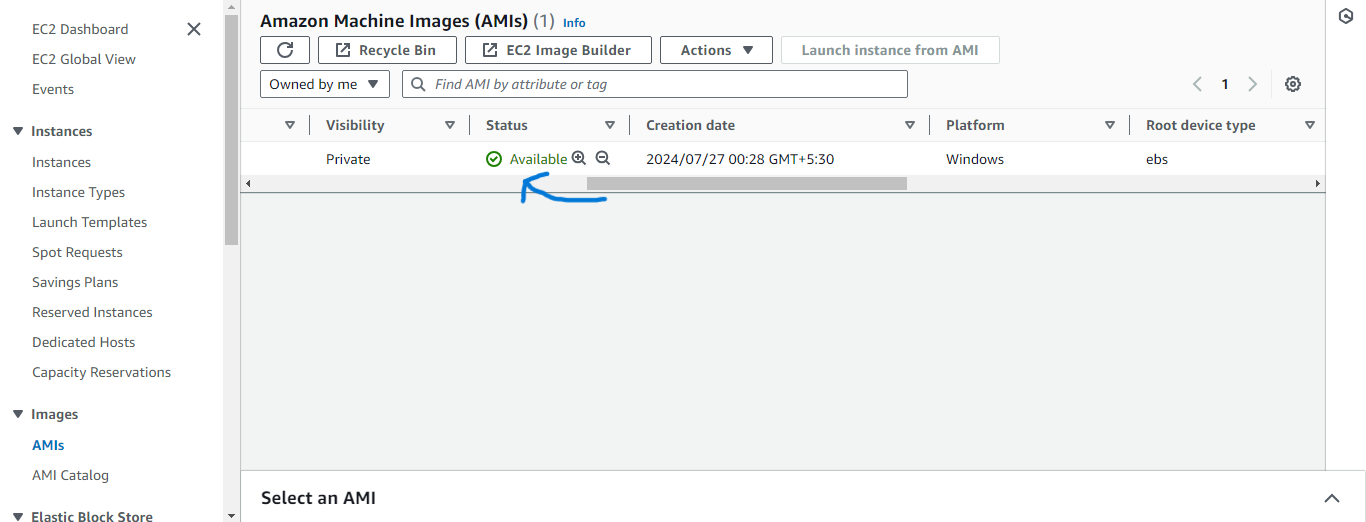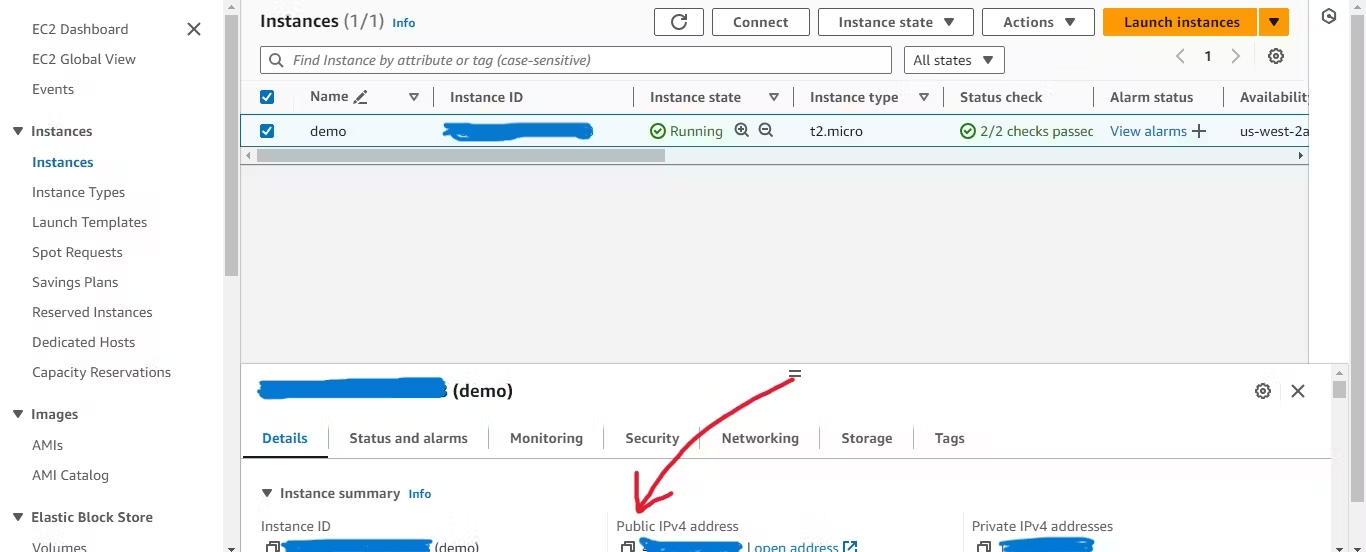Create EC2 Instances from Amazon Machine Images (AMIs): An Easy Guide
 Arish Ahmad
Arish Ahmad
An Amazon Machine Image (AMI) is an image provided by AWS that provides the information required to launch an instance. You'll need to specify an AMI when you launch an instance. You can launch multiple instances from a single AMI when you require multiple instances with the same configuration. You can use different AMIs to launch instances when you require instances with different configurations.
Steps to Create an AMI
Create an EC2 instance and AMI. You can check out an AWS EC2 Instance with Windows or an AWS EC2 Instance with Linux and AMIs from EC2 Instances.
Now select the instance and click on Actions.
NOTE: Do not terminate the instance before the image is created; otherwise, the image will not be generated. Once the image status is available, you can terminate the instance.

Select the image Click on Launch instance from AMI.
Write a suitable name for the instance you are creating.
Scroll down and select any key pair.
Check Allow RDP traffic from, Allow HTTPS traffic from the Internet, and Allow HTTP traffic from the Internet under the Network Settings.
Now click on Launch Instance.
A new instance will appear in the instance tab.
Wait until the instance state is Running and the status is 2/2 checks passed.
Copy and paste the Public IPv4 address in a new browser window.

The website hosted on the original instance should now be running on this new instance too.
Now after verifying the result, the instance and AMI can be terminated.
Subscribe to my newsletter
Read articles from Arish Ahmad directly inside your inbox. Subscribe to the newsletter, and don't miss out.
Written by

Arish Ahmad
Arish Ahmad
Final-year BTech student specializing in software development. Completed a Flutter internship and amassed three years of project experience, crafting Threads clone, Stream Arbiter, Ticketify, and Google Docs. Proficient in C++, having successfully solved 250+ LeetCode questions.